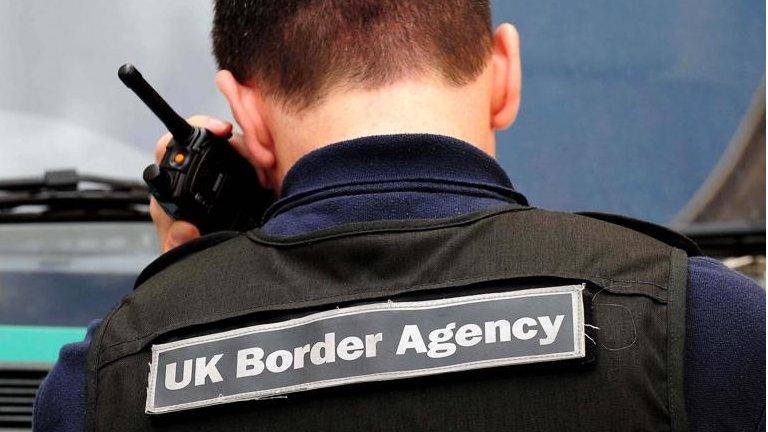Net migration into UK increases - Office for National Statistics
- Published
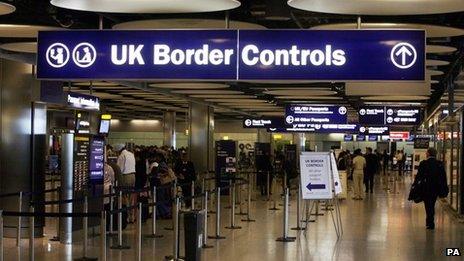
Nearly half a million immigrants arrived in the UK last year
Net migration into the UK has risen year on year for the first time in two years, official figures show.
Net migration - the difference between the number of people coming to live in the UK and those emigrating - rose to 182,000 in the year to June, up from 167,000 in the previous 12 months.
Prime Minister David Cameron wants to get this figure below 100,000 before the next election in 2015.
Immigration to the UK fell in the year to June 2013.
Latest figures, external from the Office for National Statistics show some 503,000 people came to live in the UK in the year ending June, compared with 517,000 people the previous year.
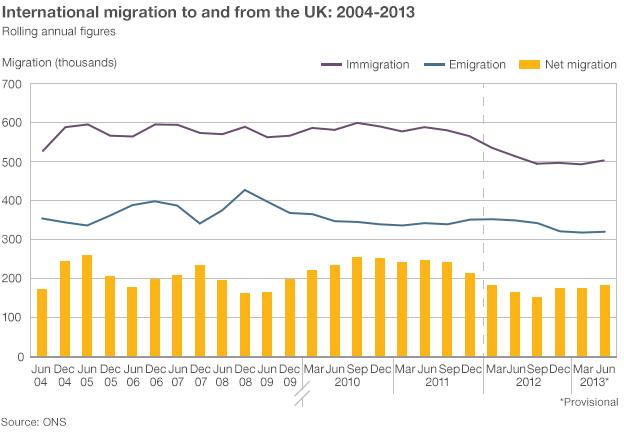
Meanwhile 320,000 people left the UK - down from 349,000 the previous year.
Emigration is now at its lowest level since 2001.
The ONS said the number of people coming to the UK from the EU had gone up by 25,000, mainly for work reasons.
Immigration from outside the EU saw a "statistically significant" drop to 242,000 in the year to June, from 282,000 the previous year, it said.
'Best guess'
China now tops the table for the number of new immigrants to the UK, followed by India, Poland, the US and Australia.
The figures come amid growing concern that Britain will face a new wave of eastern European immigration when access restrictions to the UK labour market for Romanians and Bulgarians are lifted on 1 January 2014.
On Wednesday, Mr Cameron unveiled plans to toughen welfare rules for EU migrants, including new migrants not getting out-of-work benefits for the first three months and payments being stopped after six months unless the claimant has a "genuine" chance of a job.
Earlier this year campaign group Migration Watch warned that officials could be underestimating net migration. The ONS accepted it undercounted the number of immigrants from countries which joined the EU after 2004.
In July, the Public Administration Committee also said the statistics were "little better than a best guess" and "not fit for purpose". At the time, immigration minister Mark Harper defended the statistics as "accurate" and "very robust".
'Hollow claims'
Reacting to the latest figures, Mr Harper said existing reforms were working.
"We have tightened immigration routes where abuse was rife, but are still encouraging the brightest and best to come here to study and work.
"Net migration has fallen by nearly a third since its peak in 2010 and across government we are working hard to bring it down further," he said.
Writing for website Politics Home, external, Home Secretary Theresa May said the Conservatives were the only party prepared to "stand up for Britain in Europe" and regain control of immigration and that there had been "significant policy successes".
But she said despite measures to reduce "the pull factors that draw people to Britain," so long as there is an enormous disparity between earnings in EU member states there will be an "overwhelming incentive" for people to move from poorer to richer countries.
The prime minister's official spokesman said significantly reducing net migration "absolutely remains" Mr Cameron's objective.
But shadow immigration minister David Hanson said Mr Cameron and Mrs May were failing to meet their own target.
"They promised 'no ifs, no buts' that they would meet their target of net migration in the tens of thousands by the election. Instead net migration is going up and it is higher this year than 12 months ago.
"These figures expose the massive gap between the rhetoric and the reality of Tory immigration policy. Theresa May has boasted repeatedly that net migration was falling and her target would be met. Now those hollow claims have been completely exposed," he said.
UK Independence Party leader Nigel Farage called the government's approach to bringing migration under control a "complete failure".
"The fact that we still have net migration going up, EU migration going up and immigration into the UK still running at over half a million people per year is a damning indictment of this government's failed approach to immigration," he said.
The Migration Observatory, at the University of Oxford, said the figures made it look "increasingly difficult" for the government to reduce net migration to the "tens of thousands" by the end of this parliament.
- Published3 November 2014

- Published29 August 2013
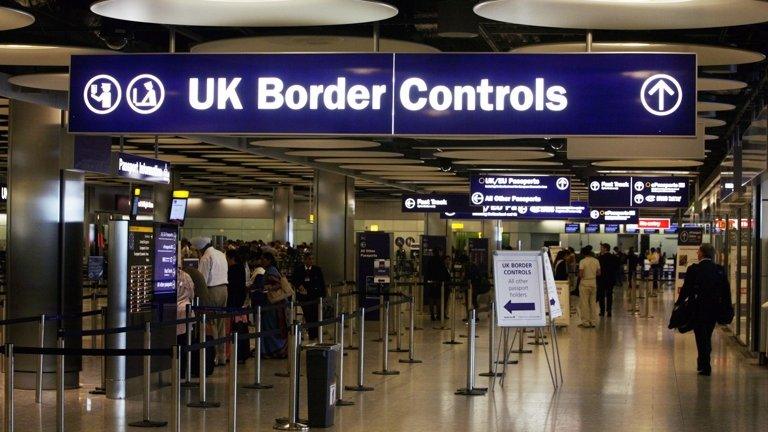
- Published11 July 2013
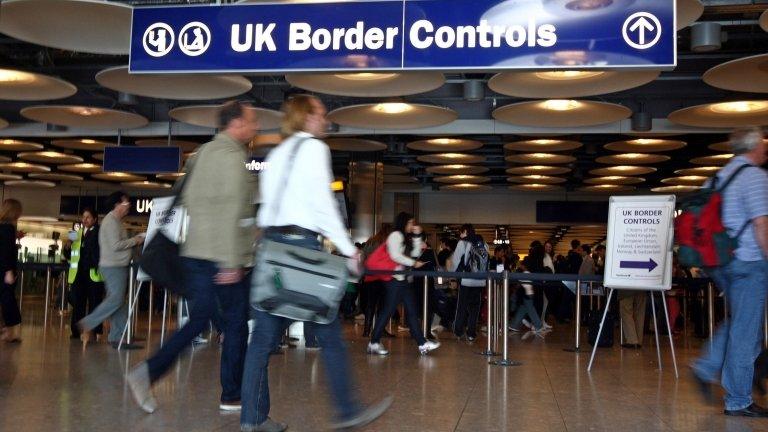
- Published28 July 2013
